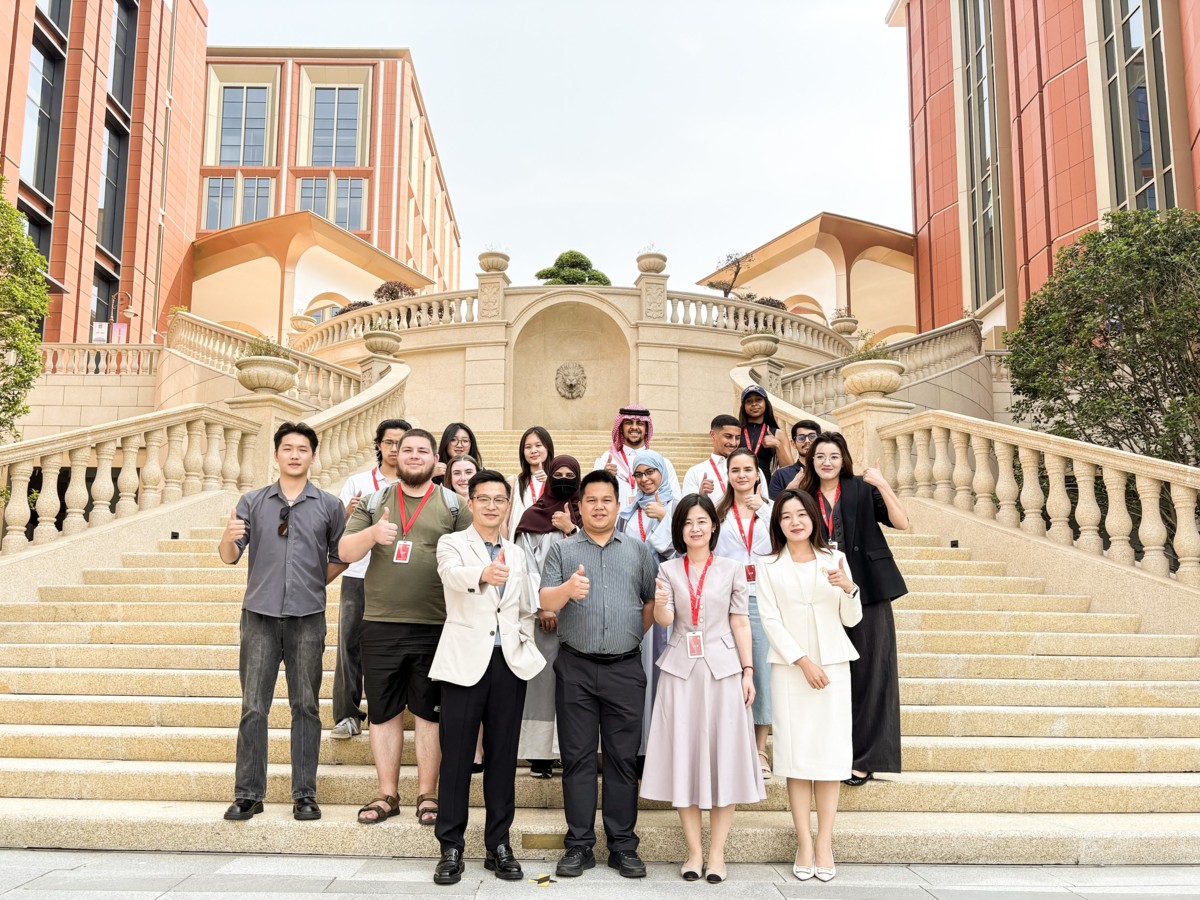On May 30, 13 ECUST international students from six countries, including Sweden, Russia, Saudi Arabia, and Indonesia, visited Huawei’s largest Research and Development center at Lianqiuhu, organized by the College of International Education. The visit offered students a first-hand experience of China’s technological advancements and fostered cross-cultural dialogue.
A Global R&D Leader: A “Smart Oasis” Where Technology Meets Humanity
Located in Qingpu District, Shanghai, Huawei’s Lianqiuhu R&D Center represents a landmark project in the Yangtze River Delta Integration Demonstration Zone. Designed with a “technology and nature in harmony” concept, the science and technology park blends Jiangnan garden aesthetics with Scandinavian architectural simplicity, which impressed students with both beauty and functionality.
Youssef, a student from Saudi Arabia, remarked, “The environment here is truly admirable. The fusion of technology and nature makes innovation feel warm and human. I hope to have the opportunity to work here in the future.”
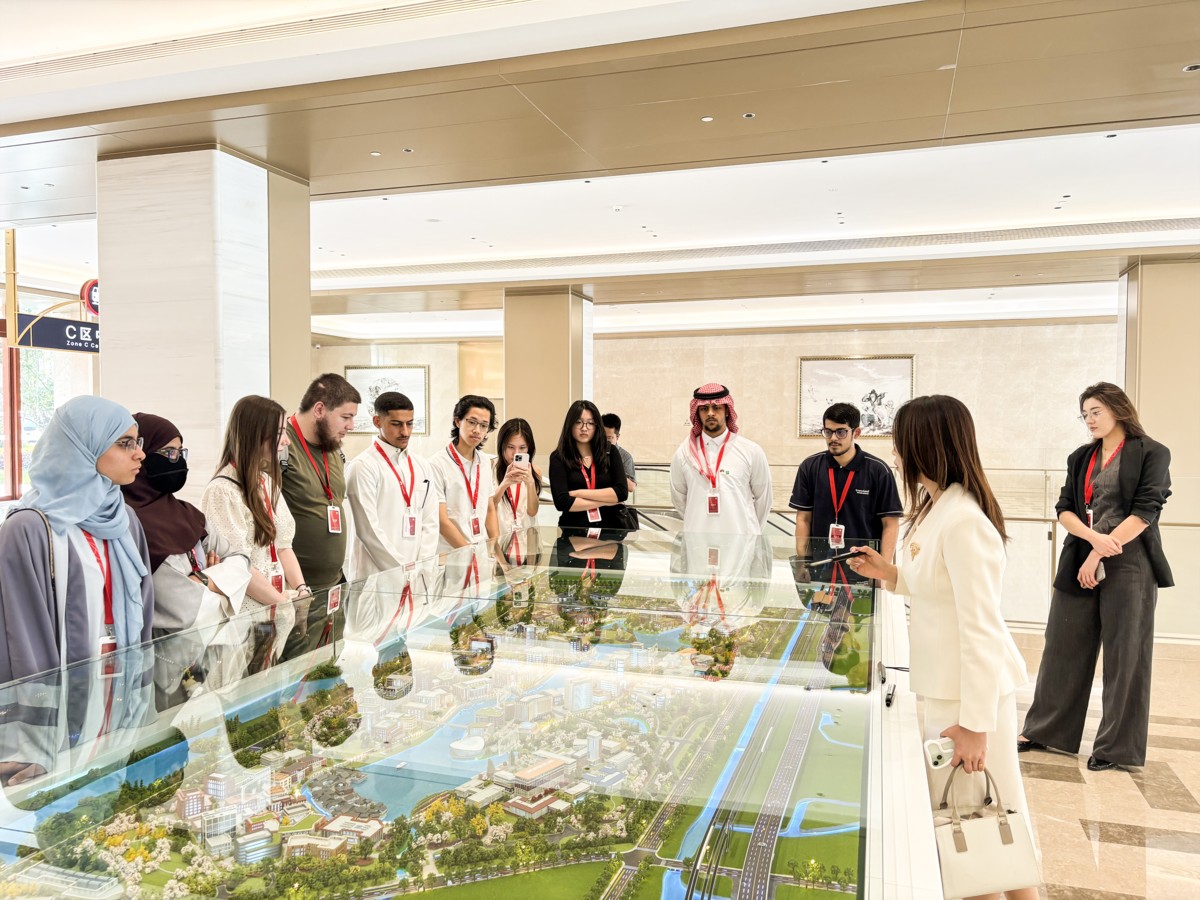
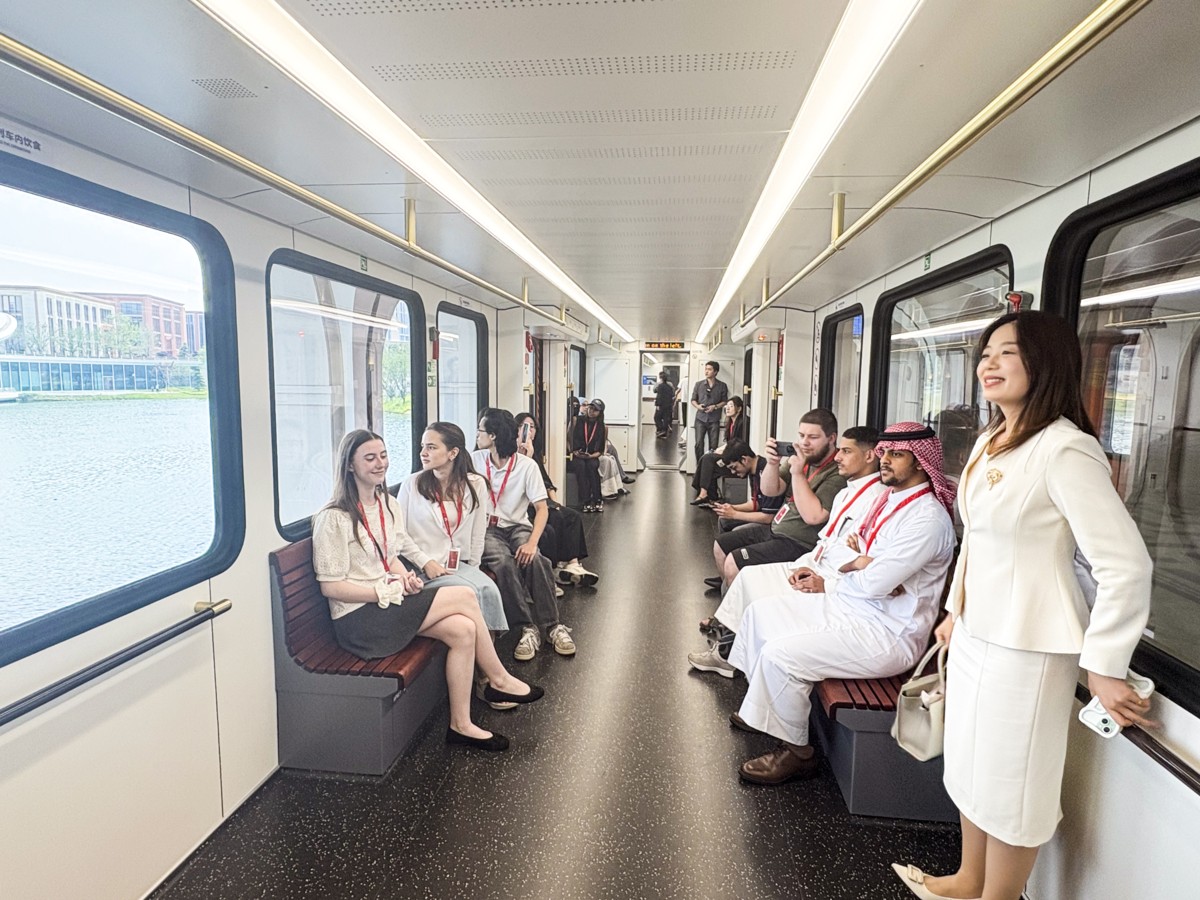
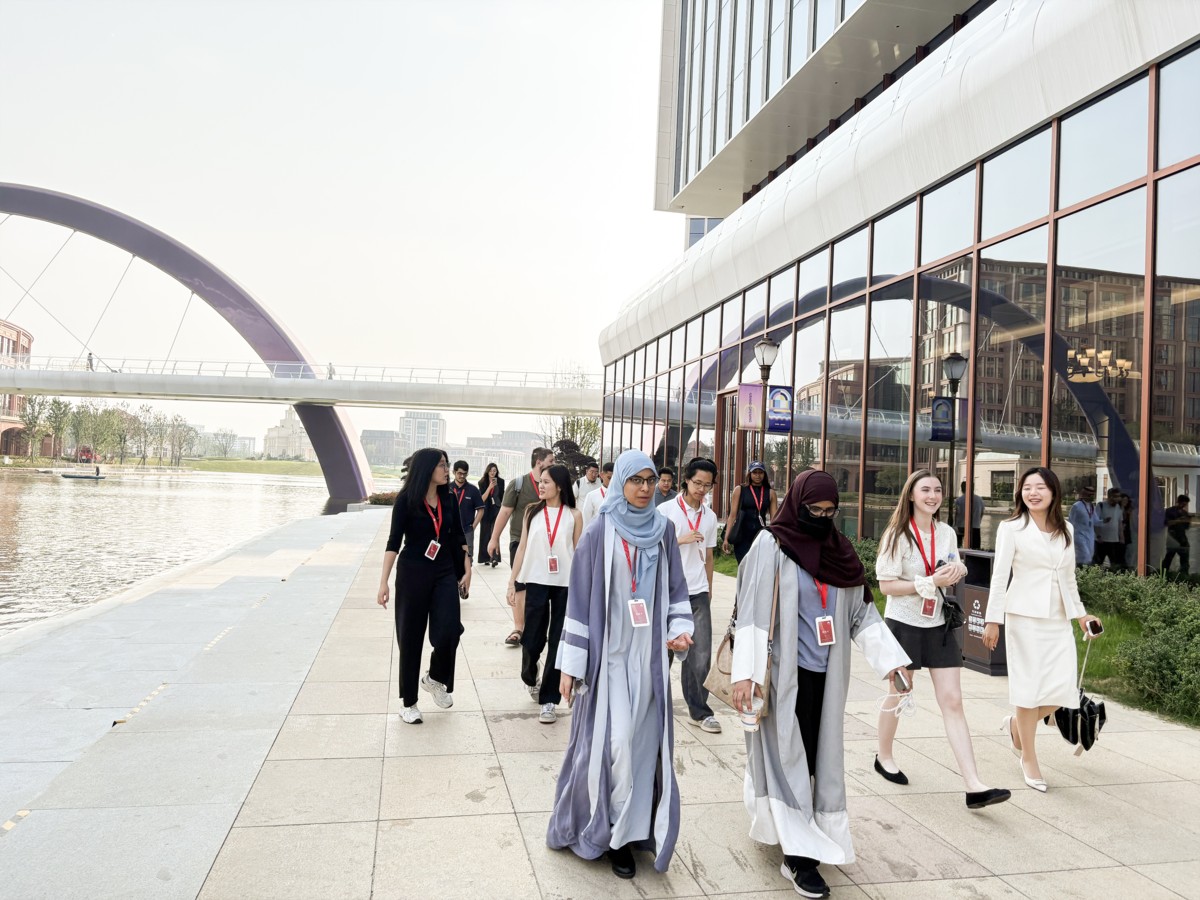
Exploring Cutting-Edge Innovation: From the HarmonyOS Ecosystem to a Smarter Future
Guided by Huawei professionals,international students explored cutting-edge technologies ranging from ultra-fast 5G networks and AI-powered smart city management to the HarmonyOS 4.0 ecosystem and High-Performance Computing Platform. They also experienced Huawei’s smart home solutions and witnessed how these innovations are transforming daily life. The visit sparked vibrant discussions on the technical details and future applications of these technologies, leaving students with a deeper understanding of China’s innovation capabilities.
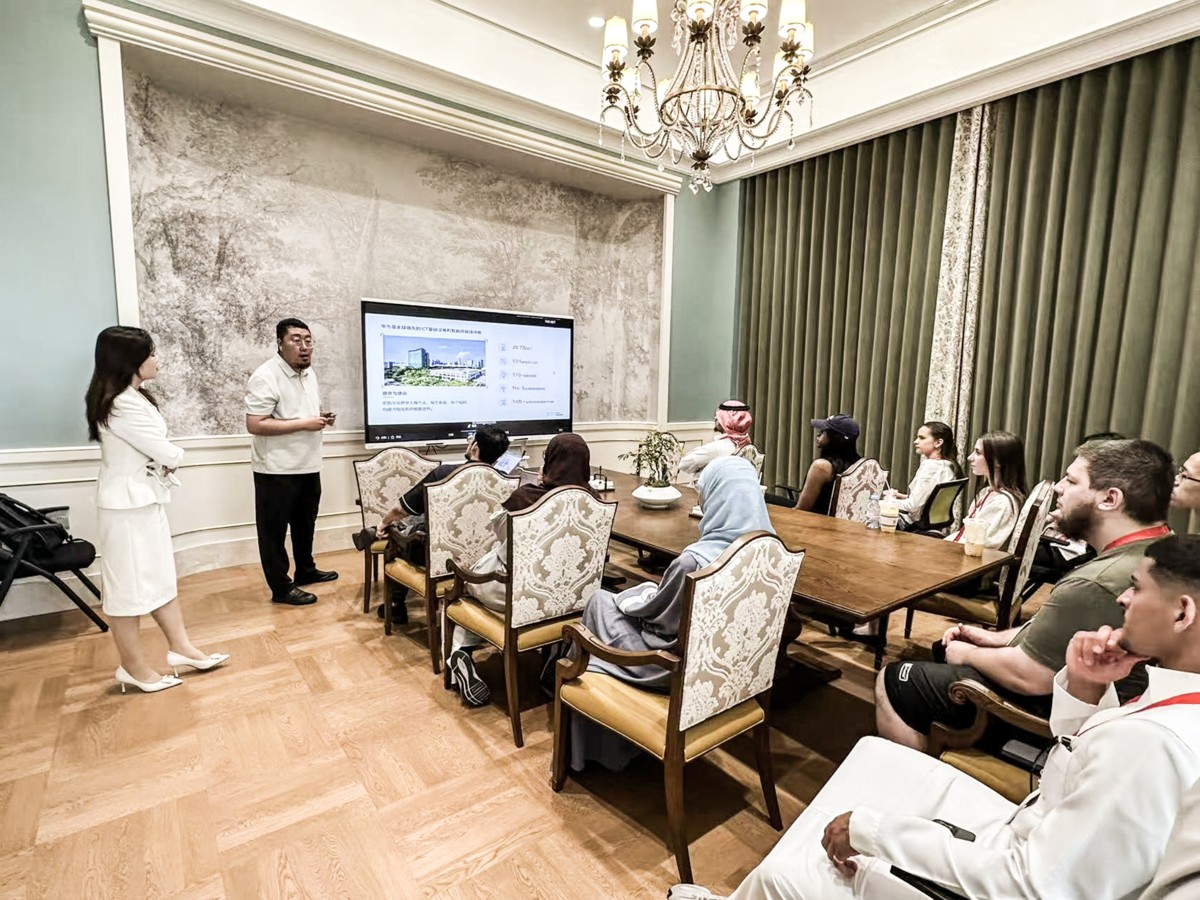
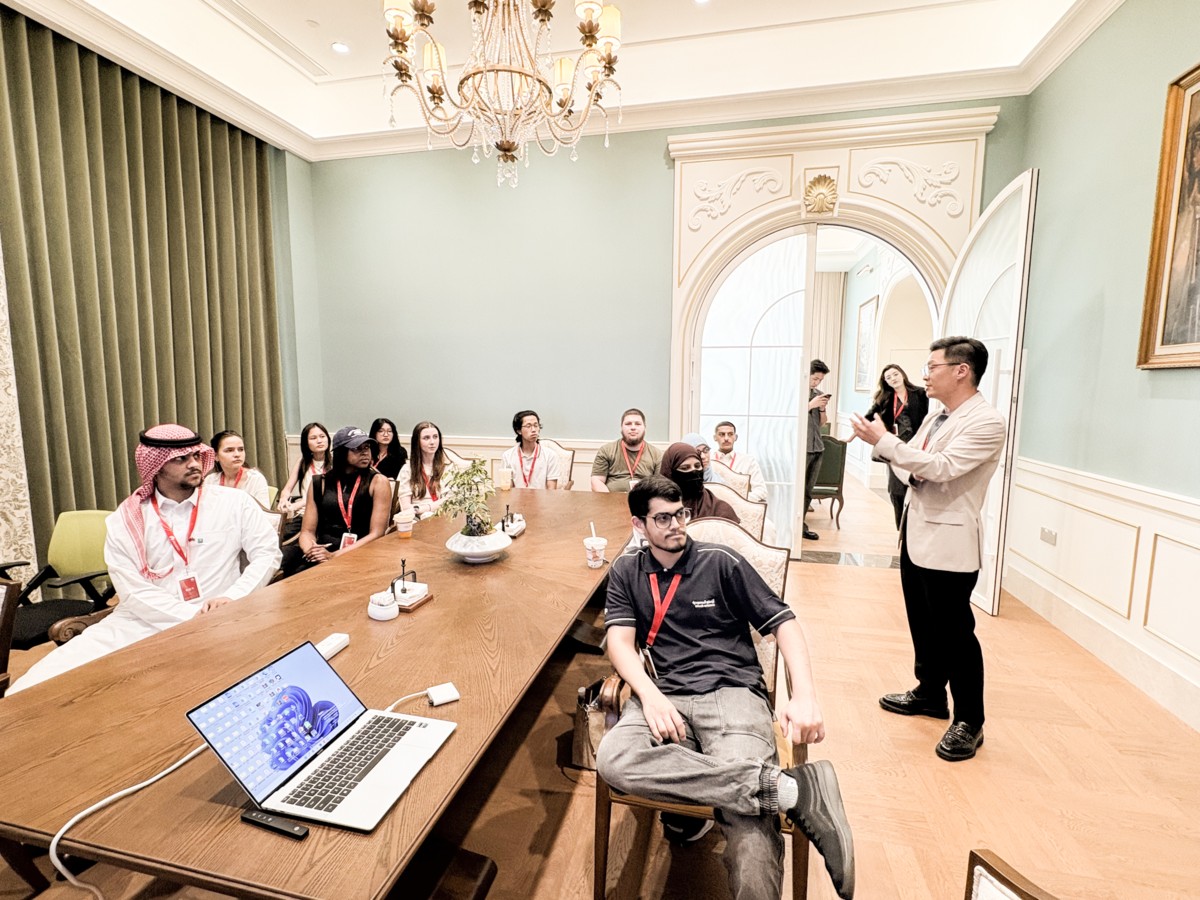
Technology as a Bridge to the World
The international student delegation experienced a hands-on tech tour where they had a close-up to China’s AI and innovation breakthroughs. Through interactive workshops and cross-cultural exchanges, participants explored how technology fosters global collaboration. The event highlighted ECUST’s commitment to international education and China’s open approach to tech development.
In the future, ECUST plans to continue offering such experiential “second classroom” activities, enabling international students to serve as ambassadors for China’s rapid technological progress and spirit of openness.
